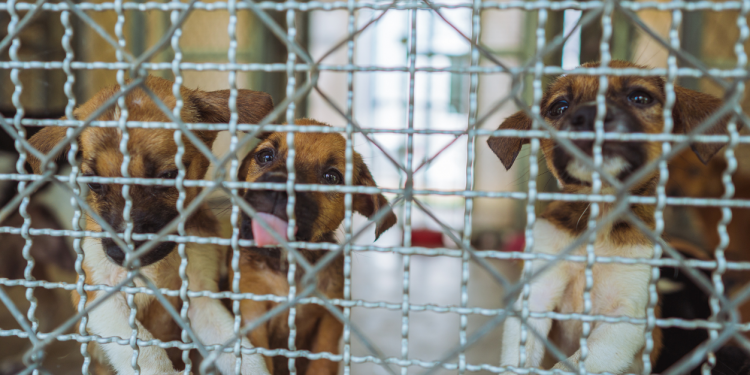I’ve always wanted pets.
As a child, I walked into every pet shop I saw and stared, starry-eyed, at the tiny little puppies with wide, longing looks.
I remember especially loving the pet shop at Nex, where my parents would leave me to watch the puppies for hours at a time while they went about their errands. Occasionally, the store owners would bring some of the puppies out of their cages, and it’ll be the highlight of my day to interact with and play with them.
As an adult, these same pet shops no longer bring me the same unbridled joy.
And no, it’s not because my love for animals has been diminished in any way. Rather, growing up has brought with it the knowledge that behind many of these pet shops is a dark and sinister supplier – puppy mills.
The Horrors of Puppy Mills
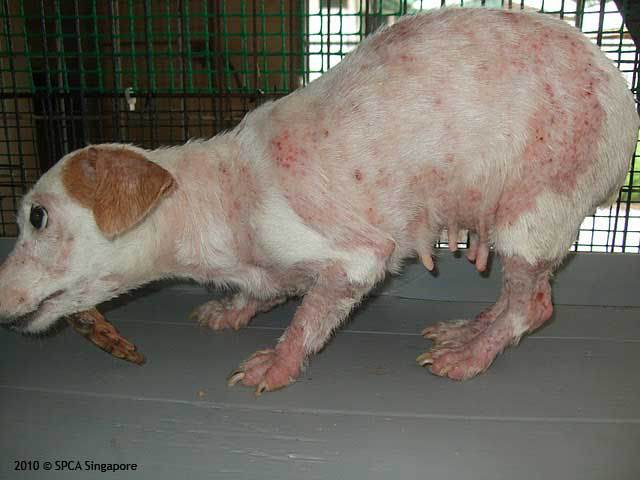
For the unfamiliar, the Society for Prevention of Cruelty to Animals (SPCA) defines puppy mills as “large scale operations with large numbers of dogs kept for breeding”.
“It is near impossible to provide high welfare conditions for individual animals in such a setting,” added SPCA.
Instead, dogs in puppy mills tend to be kept in cramped and overcrowded conditions. Given that these mills are driven by profits, they also do their best to minimise cost, either through reducing space allotted to each animal, or by minimising care, veterinary or otherwise.
According to the SPCA, common ailments that plague puppies from these mills include “untreated or poorly treated medical conditions such as tick fever, severe eye disease, chronic skin disease, and diseases related to the reproductive organs.”
“The dogs just suffer,” stated Anbarasi Boopal, Deputy Chief Executive of ACRES (Animal Concerns Research and Education Society).
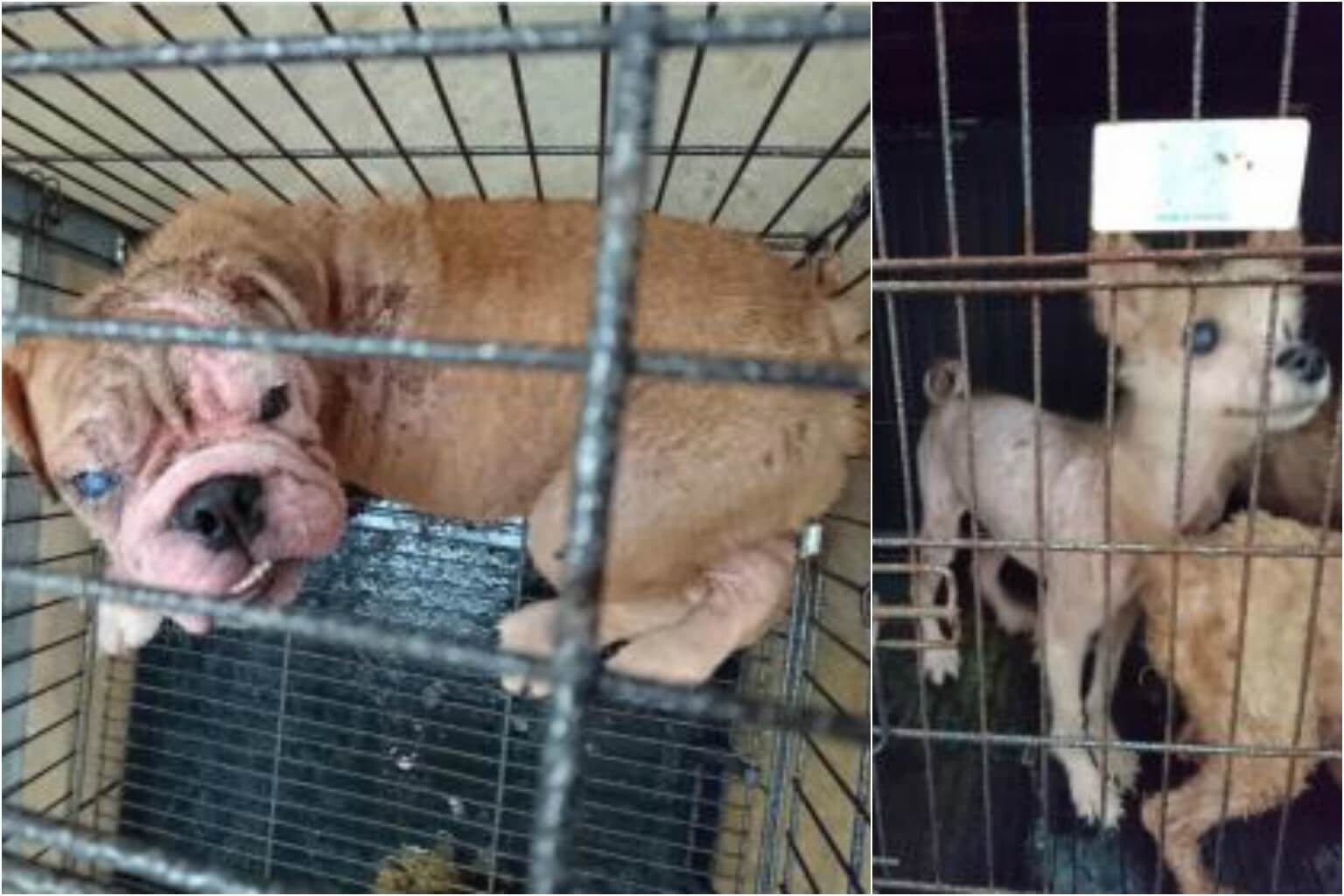
Beyond physical ailments, an animal’s mental health can also deteriorate in these mills. SPCA emphasised that dogs are “companion animals” and “yearn human affection”.
When kept in overcrowded conditions with minimal care, a dog’s mental health can suffer due to “poor socialisation and lack of sufficient avenues to perform natural behaviours.” This is notwithstanding the emotional distress that the dogs go through when “puppies are separated for sale”, according to ACRES.
Meanwhile, breeding dogs are subject to the heartbreaking fate of being breeding machines; they are forced to birth litter after litter of puppies, with little regard for their health and welfare.
ACRES highlights that female dogs that are repeatedly used for breeding can suffer from a range of issues including musculo-skeletal issues, diseases to the heart, kidney, and liver, eye problems, deafness, parasites, and kennel-related outbreaks such as mange and kennel cough.
You would think that in a developed country like Singapore, such horrors and cruelty will have no place, but the truth is far from ideal.
Puppy Mills in Singapore
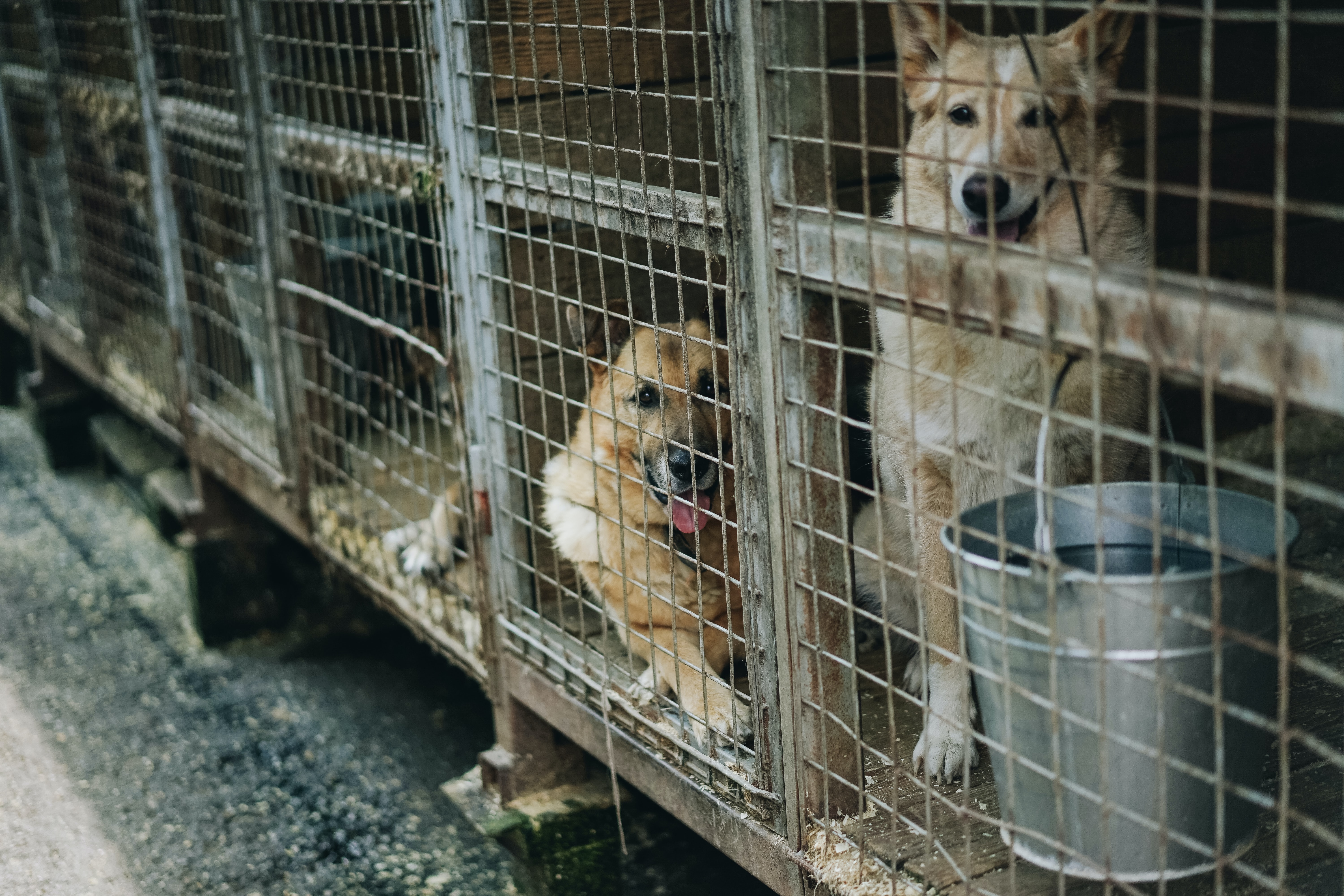
While ACRES was unable to provide us with definitive numbers for how many puppy mills are present in Singapore, they estimate that there were around 20 breeding farms here in 2020. Many of these farms are tucked away in remote corners of our island rarely visited by the public, such as farmway areas in Pasir Ris.
Additionally, according to SPCA, most puppies for sale in local pet shops are from puppy mills, whether local or imported from breeders overseas.
And yes, puppies in these local mills are equally subject to less-than-ideal conditions, to say the least. In 2010, a rescue of 85 dogs from a commercial puppy farm in Pasir Ris exposed the horrors of local puppy mills. Dogs were found to be kept in deplorable conditions, living out their days in filthy, tiny cages with little room to move around, if at all.
Many of the dogs rescued suffered from severe skin problems, tick fever, and pyometra (infection of the womb). Despite rescuers’ best efforts, some of these dogs still died.
More recently, in 2016, a spot check of a breeding farm by the Agri-Food & Veterinary Authority of Singapore (AVA) turned up some 180 dogs kept in deplorable conditions. This included eight breeding dogs. Similarly, the dogs suffered from a range of conditions including corneal swelling, corneal ulcer, loss of hair, scabs, and open wounds. It was later discovered that two dogs passed on.
Admittedly, the Agri-Food & Veterinary Authority of Singapore (AVA) has taken significant steps to improve the regulation of puppy mills in Singapore, clamping down on errant breeders and raising welfare standards. This included requiring a higher standard of care for puppies for sale in pet stores, such as ensuring dogs have sufficient space to move and stand, and proper flooring for the comfort of the dogs.
However, the SPCA cautions that these regulations are far from sufficient; when animals are being bred large-scale for profit, “animal welfare will almost inevitably suffer.”
Ultimately, they call for the “complete elimination of puppy mills.”
Continued High Demand for Pedigree Puppies Drives Puppy Mills’ Business
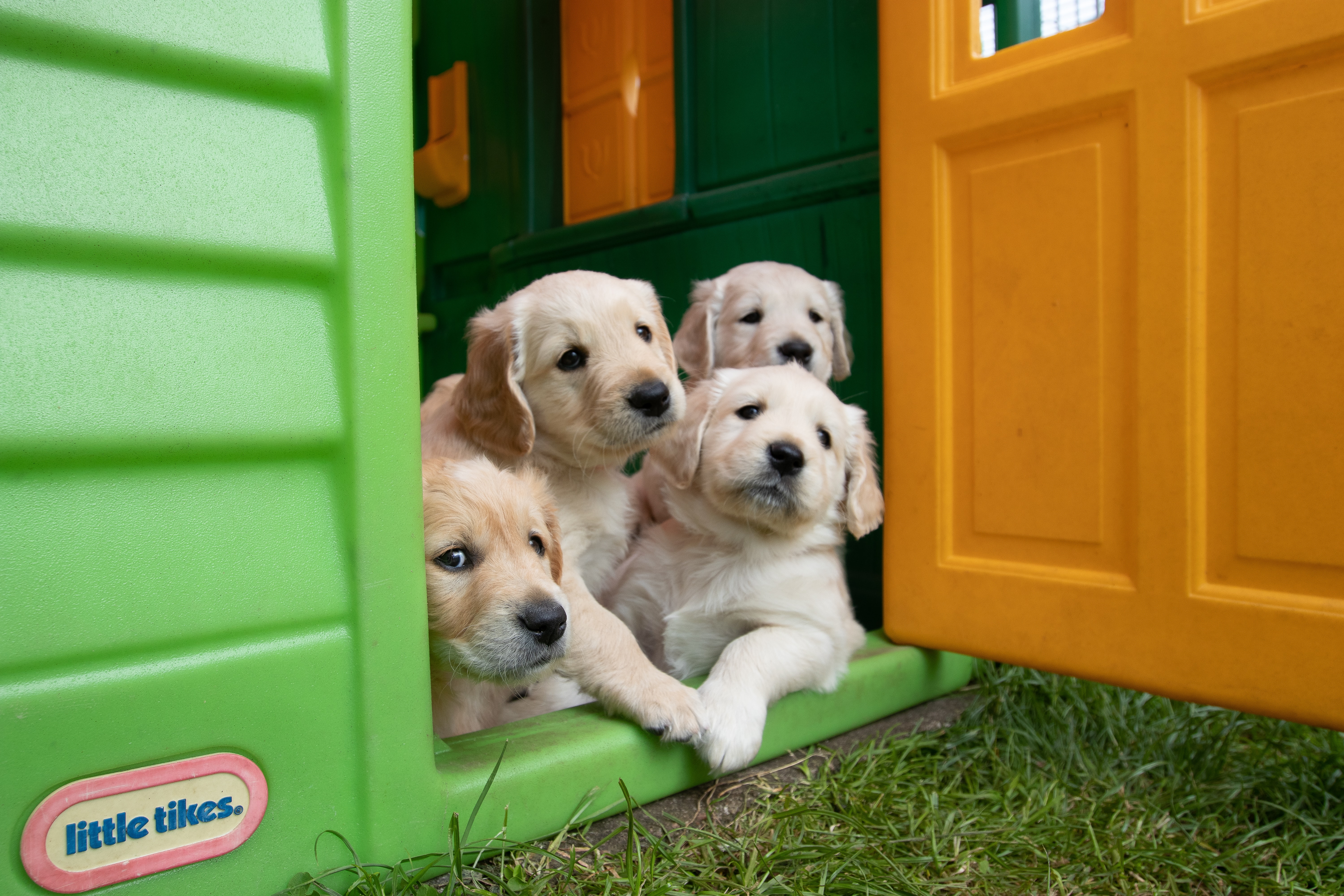
Clearly, no good comes out of these puppy mills. So why do they still exist?
Simple – demand breeds supply, and the demand for pedigree puppies is never-ending.
Ms Boopal (of ACRES) attributes the continued survival of puppy mills to a lack of awareness of what happens behind the scenes and a willingness to pay. She says, “People are still willing to pay $10 to ride an elephant, so the cruelty continues. Similarly, people are still willing to pay thousands of dollars to buy a pedigree puppy, so this cruelty continues.”
Even the pandemic hasn’t hampered this demand, as Singaporeans continue to purchase dogs despite skyrocketing prices. In January 2021, the Straits Times found that prices of popular breeds like Golden Retrievers cost up to S$12,800, up from S$5,000 in January 2020. Meanwhile, poodles were selling for as much as S$11,800.
Just last August, Anna (not her real name) was quoted a whopping S$13,600 for a West Highland White Terrier (Westie).
Today, prices have somewhat moderated, although they still remain at levels higher than pre-pandemic times. Enquiries on Golden Retriever and Westie puppies returned quotations of S$10,800 and S$8,800 respectively. Meanwhile, other popular breeds such as Shiba Inus, Corgis, and Cavapoos cost anywhere from S$6,000 to S$8,500.
Still, prospective dog owners continue to fuel an incessant demand of these pedigree puppies, and where there is demand, supply will rise to meet it, allowing puppy mills to continue thriving.
The Dark Side of Pedigree Puppies
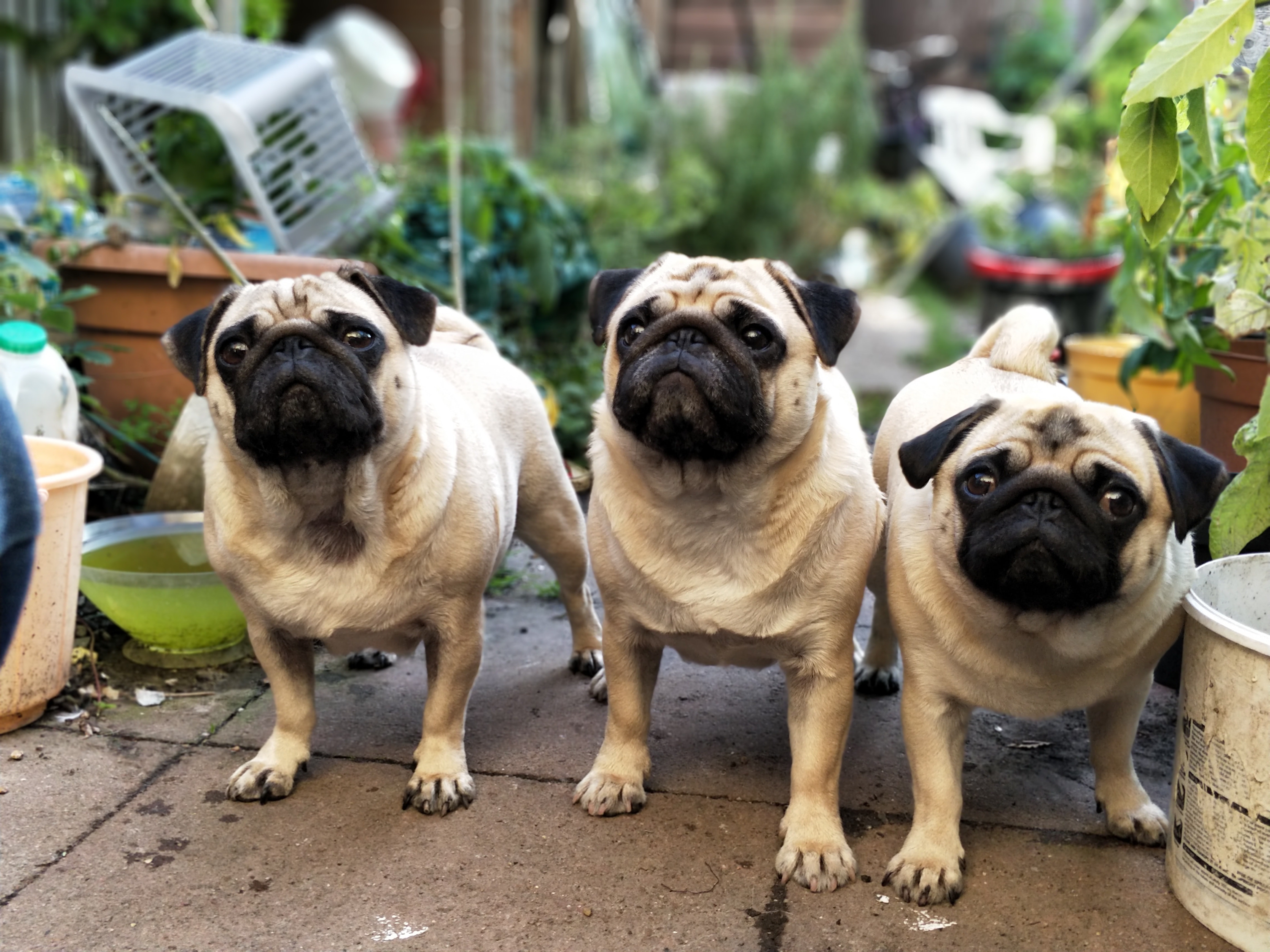
The demand for pedigree puppies also brings with it concerns that extend beyond the dismal conditions present in puppy mills.
Appearance matters, there’s no question about it. “Cuter” dogs are more in demand, and thus command higher prices, allowing for higher profits. In 2020, the Business Times reported that prices of animals may be slashed when they are deemed “defective”. They cited a case of an “unattractive” Yorkshire Terrier being let go for half its retail price, at S$1,500, because it had “sparse fur and too-long legs”.
And this obsession with “cute” and “attractive” dogs in turn encourages the breeding industry to focus on breeding the most adorable, most “perfect” specimens of each breed, forsaking other traits like good health and temperament in the process.
This trend of breeding simply for looks has, as a result, caused hereditary diseases to become prevalent in pedigree dogs.
SPCA shines the spotlight on flat-faced breeds in particular, which includes species like Shih Tzus, Pugs, and French Bulldogs. While their flat faces are deemed as desirable traits by many dog lovers, this same trait also forces them to lead a life fraught with breathing difficulties and other associated medical issues.
“Surely good health and welfare is far more important than physical appearance,” SPCA stresses.
Purchasing from Ethical Breeders

If you do have to purchase a dog, do your due diligence and ensure that it comes from ethical origins. This includes ensuring that the living environment of the animals is comfortable, and that the dogs you are purchasing are healthy.
In particular, SPCA underscores that you should “never buy a puppy if you are not allowed to see the parents.” They also advise consumers to “check if the (puppy’s) parents have been tested or examined for hereditary diseases, how the parents and the puppies are socialised, what kind of enrichment is provided for them, how many litters the female dog has had, and how the animals’ health is taken care of.”
It should be noted that while Singapore’s animal breeders are regulated (to some extent), these same regulations do not apply to puppies that are imported. Thus, the health and heritage of imported puppies tend to be a big question mark.
Ultimately, Ms Boopal still urges those looking for a furry companion to avoid purchasing one and adopt one instead.
“A dog is not a designer item to look for a specific colour, fur length, and features,” she says, “every dog can provide love and receive love.”
Adopt, Don’t Shop

And so, at the end of the day, we return to the familiar refrain: Adopt, don’t shop.
“Singapore has hundreds of rescued dogs waiting to be adopted [into] a loving home,” Ms Boopal shares. SPCA reaffirms this, calling for prospective dog owners to make shelters “your first stop when thinking of obtaining a pet”.
Ms Boopal also addressed the common argument that many opt to buy dogs instead of adopt due to restrictions in Singapore where only smaller dogs are allowed in HDB flats, saying that “there are still so many such dogs awaiting a home in shelters.”
Advocating for adoption, Ms Boopal highlights, “This is a live animal who is going to become a member of your family. You are going to shower this animal with love…With this kindness in your heart, why support cruelty by becoming part of it?”
If we want the cruelty of puppy mills to end, the onus is on every single one of us. As Ms Boopal says, “when the buying stops, the killing (and the cruelty) will too.
Whether or not we are one of those looking to get a puppy, we can still lend our voices to the cause and call for higher standards of care within the breeding industry, and an end to puppy mills.
If you’re looking for a loving companion to join your family, or if you wish to contribute to the cause, here’s a list of shelters you can support (this list is non-exhaustive):
- Society for the Prevention of Cruelty to Animals (SPCA)
- Action for Singapore Dogs
- Causes for Animals Singapore
- Voices for Animals
- Save Our Street Dogs
- Mutts & Mittens
- Animal Lovers League
- Oasis Second Chance Animal Shelter
- Hope Dog Rescue
Special thanks to: SPCA and ACRES
Join the conversations on THG’s Facebook and Instagram, and get the latest updates via Telegram.



